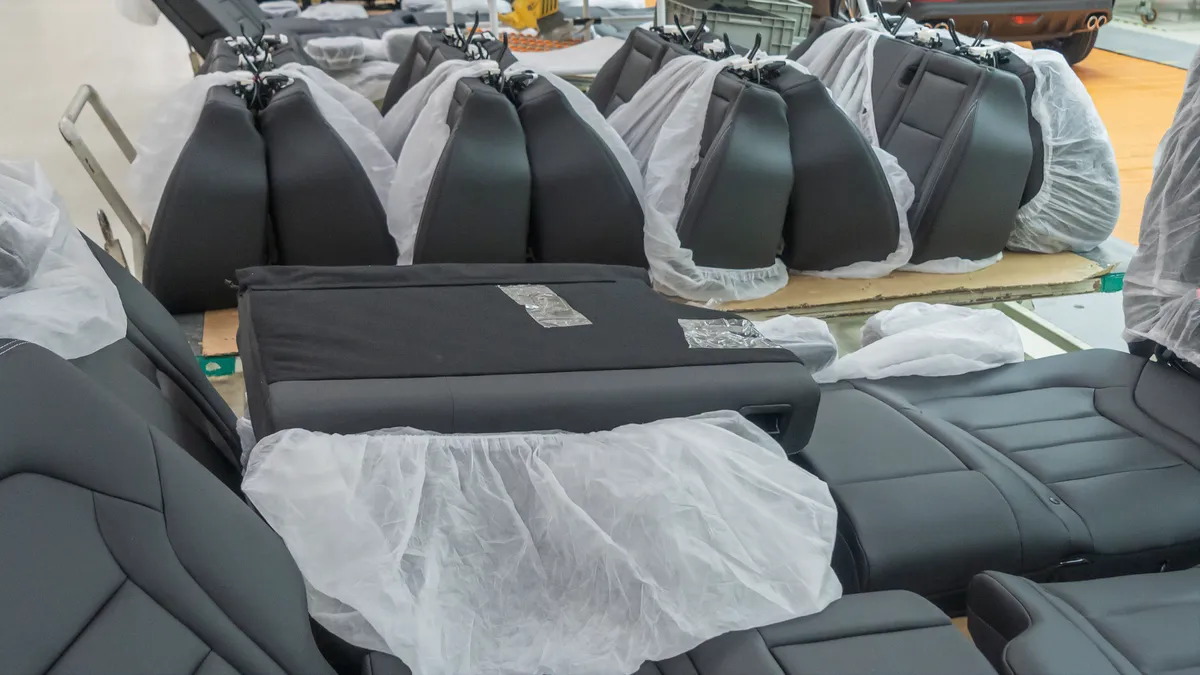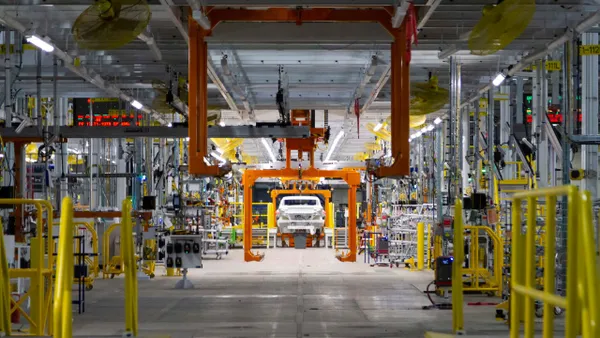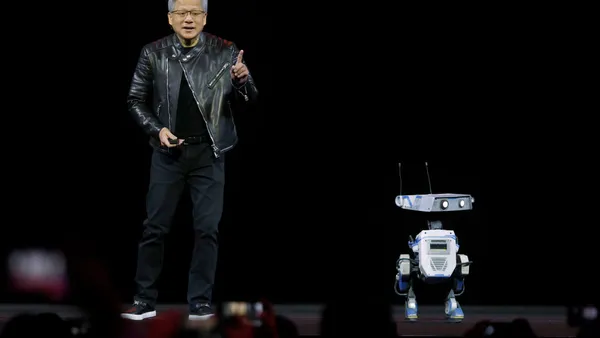Dive Brief:
- Customers of Israeli semiconductor maker Mobileye are sitting on stockpiled inventory of microchips, according to the company’s preliminary report on fiscal 2023.
- Specifically, Mobileye management estimates that its tier 1 customers are holding 6 million to 7 million excess units of its EyeQ SoCs chips for advanced driver assistance systems. The company expects customers to work through most of the surplus in Q1 of this year.
- “Based on our discussions, we understand that much of this excess inventory reflects decisions by Tier 1 customers to build inventory in the Basic ADAS category due to supply chain constraints in 2021 and 2022 and a desire to avoid part shortages, as well as lower-than-expected production at certain OEM’s during 2023,” the chipmaker said in its release.
Dive Insight:
The semiconductor shortage of the pandemic era left a scar on numerous industries, including the automotive industry, where production was slowed by supply shortfalls.
Mobileye’s report sheds light on how the auto industry reacted to the scarcity in chips — by stockpiling inventory to brace against the possibility of a protracted shortage. Now, with vehicle sales in decline, the chipmaker’s customers are working through their excess stock.
“As supply chain concerns have eased, we expect that our customers will use the vast majority of this excess inventory in the first quarter of the year,” the company said.
While its customers draw down their inventory, Mobileye expects to sell 4 million to 6 million fewer chips and make 50% less revenue in Q1 than it did last year.
Mobileye didn’t say which of its customers were hoarding how much inventory. Its largest tier 1 customers are the auto suppliers ZF, Valeo and Aptiv, the three of which account for 38%, 18% and 15% of Mobileye’s revenue respectively, according to its most recent full annual report. Those and other tier 1 customers go on to sell to automakers, making up the lion’s share of Mobileye’s business.
Other industries and chipmakers have been wrestling with similar supply and demand realignments. Taiwan Semiconductor Manufacturing Co. — which supply chips to the likes of Apple, Qualcomm and Sony, among others — struggled with falling revenue in 2023 as its customers worked through their own inventory levels. This October, executives said that demand was finally showing early signs of stabilizing.













